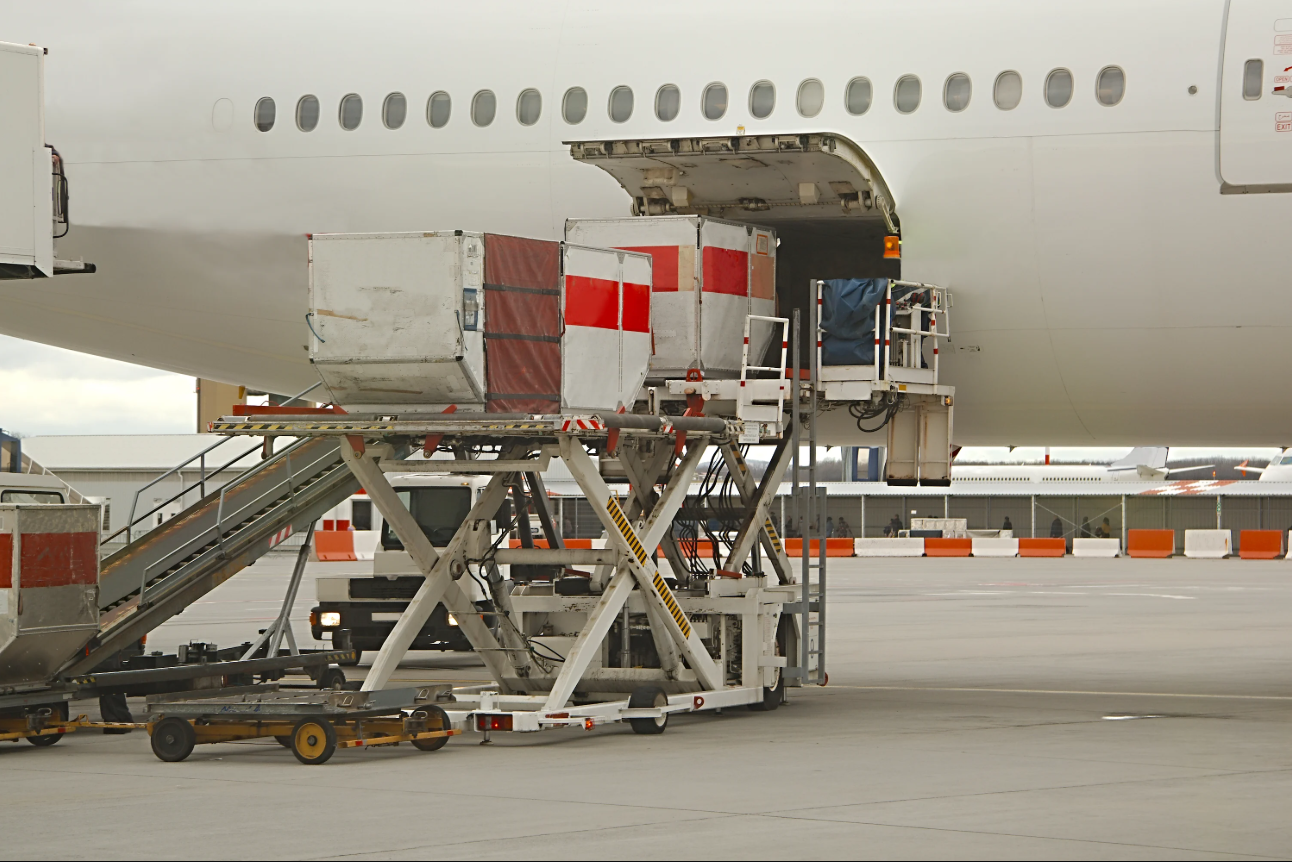Bulk cargo: Difference between revisions
m 1 revision imported |
No edit summary |
||
| Line 1: | Line 1: | ||
[[File:Bulk cargo.png|375px|right|thumb|Shipping quickly globally means shipping by air. Every 24 hours, more than 140,000 tonnes of cargo will be transported, equating to 657 million packages worth 17.8 Billion USD. To ship this much air cargo, it takes a massive amount of aircraft ULDs to get the consignments safely from one destination to the other. ]] | |||
In the context of aviation, bulk cargo refers to large quantities of unpackaged goods, like grain or coal, that are transported loose, rather than in containers or packages. It's distinct from break-bulk cargo, which is packaged but not containerized. Bulk cargo is often transported in specialized cargo ships or planes designed to handle these large volumes. | In the context of aviation, bulk cargo refers to large quantities of unpackaged goods, like grain or coal, that are transported loose, rather than in containers or packages. It's distinct from break-bulk cargo, which is packaged but not containerized. Bulk cargo is often transported in specialized cargo ships or planes designed to handle these large volumes. | ||
| Line 20: | Line 21: | ||
=== Aviation Application === | === Aviation Application === | ||
In aviation, specialized cargo planes and procedures are used to transport bulk cargo, often using ULDs for consolidation and efficient loading. | In aviation, specialized cargo planes and procedures are used to transport bulk cargo, often using ULDs for consolidation and efficient loading. | ||
Revision as of 07:00, 3 May 2025

In the context of aviation, bulk cargo refers to large quantities of unpackaged goods, like grain or coal, that are transported loose, rather than in containers or packages. It's distinct from break-bulk cargo, which is packaged but not containerized. Bulk cargo is often transported in specialized cargo ships or planes designed to handle these large volumes.
Elaboration
Unpackaged and Loose
Bulk cargo is characterized by being shipped in large, unpackaged quantities, making it suitable for materials like grains, coal, iron ore, and cement.
Different from Containerized Cargo
Unlike general cargo, which is often shipped in containers, bulk cargo is transported directly in its raw form.
Examples
Common examples of bulk cargo include grains (wheat, corn), coal, iron ore, and various other raw materials.
Handling
Specialized equipment and procedures are often employed for loading and unloading bulk cargo, including the use of ULDs (Unit Load Devices) for consolidation and easier handling.
Types
Bulk cargo can be further categorized into dry bulk (like grains and coal) and liquid bulk (like oil and chemicals).
Aviation Application
In aviation, specialized cargo planes and procedures are used to transport bulk cargo, often using ULDs for consolidation and efficient loading.
